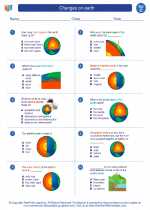Set Point in Science
The concept of a "set point" is a crucial idea in the field of science, especially in the study of living organisms and their internal regulation. The set point refers to the ideal or target value for a particular physiological variable, such as body temperature, blood glucose level, or pH balance.
Examples of Set Points:
- Body Temperature: The set point for human body temperature is around 98.6 degrees Fahrenheit (37 degrees Celsius).
- Blood Glucose Level: The set point for blood glucose is typically around 100 milligrams per deciliter.
- pH Balance: The set point for pH balance in the human body is around 7.4, indicating a slightly alkaline environment.
Regulation and Feedback Mechanisms:
Organisms have intricate regulatory systems that work to maintain these physiological variables close to their set points. This process often involves feedback mechanisms, such as negative feedback loops, where any deviation from the set point triggers a response to bring the variable back to its ideal level.
Studying the Set Point Concept:
When studying the set point concept, it's important to understand how different organisms maintain their internal stability and how external factors can influence these set points. Additionally, exploring the role of hormones, the nervous system, and other regulatory mechanisms is essential in grasping the complexity of set point regulation.
Study Guide for Set Point:
- Define the term "set point" in the context of physiological regulation.
- Identify and describe at least three examples of set points in living organisms.
- Explain the role of feedback mechanisms in maintaining set points.
- Discuss the impact of environmental factors on set points and regulatory systems.
- Explore the relationship between the set point concept and homeostasis.
Understanding the set point concept is fundamental to comprehending how living organisms maintain internal stability and adapt to changing conditions.
[Set Point] Related Worksheets and Study Guides:
.◂Science Worksheets and Study Guides Third Grade. Changes on earth

 Activity Lesson
Activity Lesson
 Worksheet/Answer key
Worksheet/Answer key
 Worksheet/Answer key
Worksheet/Answer key
 Worksheet/Answer key
Worksheet/Answer key
 Worksheet/Answer key
Worksheet/Answer key
 Vocabulary/Answer key
Vocabulary/Answer key
 Vocabulary/Answer key
Vocabulary/Answer key
 Vocabulary/Answer key
Vocabulary/Answer key
